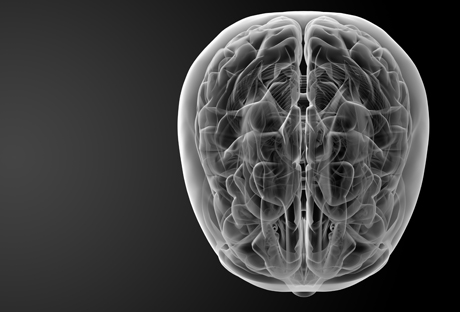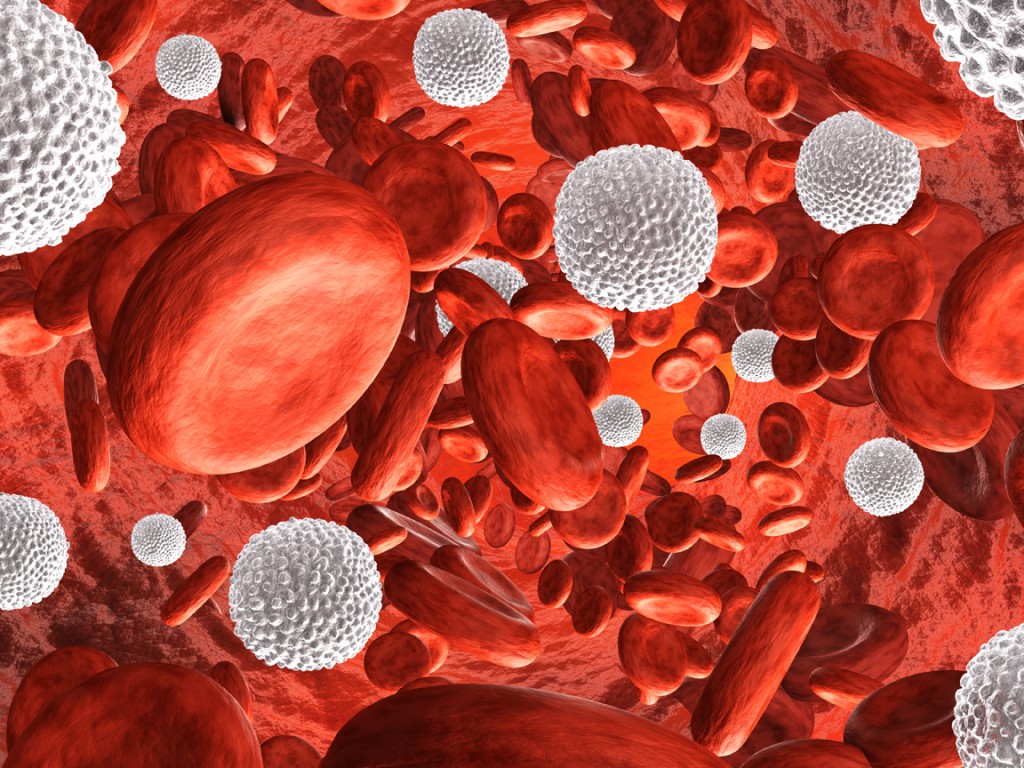Inflammation Can Differentiate Apathy From Depression in Older Patients
In a new study by ESM Eurelings and colleague in the journal International Psychogeriatrics, the inflammatory marker C-reactive protein differentiated between older people with symptoms of apathy versus symptoms of depression. Higher levels of C-reactive protein were found in those with symptoms of apathy. The researchers concluded that apathy may be a manifestation of mild inflammation in elderly people.
People with High Inflammation Respond Best to EPA Omega-3 Fatty Acids in Depression
Omega-3 fatty acids are found in some green vegetables, vegetable oils, and fatty fish. There is some evidence that omega-3 fatty acid supplements can reduce depression, but researchers are trying to clarify which omega-3s are most helpful, and for whom. A new study in Molecular Psychiatry suggests that depressed people with higher inflammation may respond best to EPA omega-3 fatty acids compared to DHA omega-3 fatty acids or placebo. Researchers led by M.H. Rapaport divided people with major depressive disorder into “high” and “low” inflammation groups based on their levels of the inflammatory markers IL-1ra, IL-6, high-sensitivity C-reactive protein, leptin, and adiponectin. Participants were randomized to receive eight weeks of treatment with EPA omega-3 supplements (1060mg/day), DHA omega-3 supplements (900mg/day), or placebo.
While overall treatment differences among the three groups as a whole were negligible, the high inflammation group improved more on EPA than on placebo or DHA, and more on placebo than on DHA. The authors suggest that EPA supplementation may help relieve symptoms of depression in people whose depression is associated with high inflammation levels, a link common among obese people with depression.
Editor’s Note: These data add to a study by Rudolph Uher et al. in which people with high levels of C-reactive protein responded better to the tricyclic antidepressant nortriptylene, while those with low levels of the inflammatory marker responded better to the selective serotonin reuptake inhibitor antidepressant escitalopram.
Heart Attacks, Surgery Lead to Memory Impairment in Mice
Events like surgery or heart attacks that cause inflammation can lead to cognitive deficits or depression for months or years afterward, even though the direct effects of inflammation wear off within weeks. In a recent study, Natalie Tronson and colleagues subjected mice to surgical heart attack, sham surgery, or no operation, and observed how well they absorbed new learning eight weeks later.
Both male and female mice had impairments in fear learning following surgical heart attacks. Female mice that received sham surgery also showed deficits in fear learning. When the researchers dissected the mice, analyzing their blood and hippocampi after the eight-week period, inflammatory cytokine measures had normalized as expected, but the researchers found other abnormalities.
Intracellular signaling was dysregulated, and there had been epigenetic changes in cells of the hippocampus. (Epigenetic changes refer to those that change the structure of DNA, such as how tightly it is wound, rather than its sequence. For example, the addition of acetyl groups to DNA or the histones around which it is wound.) The researchers observed increased histone acetylation and phospho-acetylation following the heart attacks.
The researchers concluded that a systemic inflammatory event, such as heart attack or surgery, can cause long-term memory impairment and changes in mood through epigenetic mechanisms. They compared the findings to those of other studies in which normal aging and memory-impairing treatments such as chemotherapy had also been associated with increases in histone acetylation or decreases in histone deacetylase activity.
Early Life Stressors Lead to Lifetime Increase in Inflammation in Mice
Stressors in early life can contribute to the risk of developing mood disorders. Given that many treatments for mood disorders work by blocking the serotonin 5-HT transporter, Nicole Baganz and colleagues designed a study to see whether an early life stressor, in this case maternal separation, would affect immune processes that in turn affect serotonin signaling.
In this study as in many before it, mice that were removed from their mothers exhibited behaviors that resembled human anxiety and depression. They were also found to have elevated messenger RNA for several inflammatory cytokines (including IL-1beta and IL-6) in their brain and blood. Mice that had a gene for the interleukin-1 receptor (IL-1R) removed exhibited neither the depressive behavioral effects nor the changes in cytokine levels following maternal separation, showing that the IL-1R gene plays a necessary role in the signaling process that leads to this type of depression. Levels of the stress hormone corticosterone in the blood did not differ in the mice with and without the IL-1R gene.
The researchers concluded that early life stressors can cause lifelong changes in inflammatory cytokine levels in mice.
Mild Traumatic Brain Injury and Deployment Associated with Inflammatory Abnormalities in Veterans of the Iraq and Afghanistan Wars
Mild traumatic brain injury from improvised explosive devices is an injury particular to veterans of the wars in Iraq and Afghanistan. As has been seen in some athletes who sustain repeated mild traumatic brain injuries, such as boxers and football players, neurodegenerative dementias such as chronic traumatic encephalopathy can follow these repeated brain injuries. Researchers are hoping to identify biomarkers that would help in the diagnosis and monitoring of repeated blast-induced mild traumatic brain injury. Researcher Elaine Peskind and colleagues have determined that both deployment to these wars and mild traumatic brain injuries received there are associated with increased inflammatory cytokines in cerebrospinal fluid.
In the study, veterans who had been deployed to Iraq or Afghanistan and had received mild traumatic brain injuries were compared to veterans who were deployed but who were not similarly injured and community participants who had neither been deployed nor experienced a brain injury. The average number of concussion-inducing blasts veterans in the first group had experienced was 14, with the latest occurring an average of four years prior to the study.
Inflammatory cytokine IL-7 was elevated in the spinal fluid of those veterans who had sustained brain injuries. IL-6 was higher both in those deployed and in those who sustained blasts. Eotaxin and granulocyte colony stimulating factor were higher in all of the veterans who had been deployed.
These cytokine abnormalities could account for behavior and cognitive difficulties associated with traumatic brain injury. The researchers concluded that both deployment and mild traumatic brain injury were associated with neural damage and neuroimmune responses.
Editor’s Note: Michael E. Hoffer et al. reported in the journal PLosOne in 2013 that veterans with blast-induced mild traumatic brain injury had a better acute outcome when they were given the antioxidant N-acetylcysteine (NAC) within the first 24 hours after the trauma. It is interesting to speculate whether this could be explained by NAC’s anti-inflammatory effects, its enhancement of another antioxidant (glutathione), or its ability to increase glial glutamate transporters.
Researcher Dewleen Baker reported in a personal communication to this editor (Robert Post) that in her patients, traumatic brain injury was also associated with white matter abnormalities, and that these injuries conveyed an increased risk of developing PTSD as well.
Maternal Anxiety Affects Information Filtering in the Infant Brain, Choline Could Help
 Sensory gating is a process by which the brain filters out unimportant information, to avoid flooding higher cortical centers with irrelevant stimuli. New research from Randal Ross and colleagues shows that infants of mothers with anxiety have deficits in the way their brains inhibit response to this type of irrelevant information.
Sensory gating is a process by which the brain filters out unimportant information, to avoid flooding higher cortical centers with irrelevant stimuli. New research from Randal Ross and colleagues shows that infants of mothers with anxiety have deficits in the way their brains inhibit response to this type of irrelevant information.
Mothers who were rated higher on the trait of anxiety had paradoxically lower levels of the inflammatory cytokine interleukin 6 at week 16 of their pregnancy, and their one-month-old infants showed more deficits in sensory gating. The reasons for these relationships requires further investigation.
Choline is a nutrient found in liver, muscle meats, fish, nuts, and eggs, and it may help. In a 2013 article in the American Journal of Psychiatry, Ross and colleagues showed that the supplement phosphatidylcholine (which converts to choline), taken during the second and third trimesters of pregnancy (at doses of 6300 mg/day, the equivalent of about three eggs) and followed up with 700 mg/day in the infant, led to improvements in sensory gating in the infants. These infants went on to have fewer behavioral problems as toddlers.
Ross and colleagues suggest that pre- and post-natal choline supplementation may be able to reverse the effects of maternal anxiety on infants. The researchers believe it could be helpful in the prevention of schizophrenia, as insufficient cerebral inhibition (decreased sensory gating) is a characteristic of that illness as well.
Abnormal Levels of Cytokines Found in Brains of Suicide Victims
Cytokines are chemical messengers that send signals between immune cells and between the immune system and the central nervous system. Their levels in blood are considered a measure of inflammation, which has been implicated in depression and stress. A new study by Ghanshyam Pandey and colleagues reported increased levels of cytokines in the brains of people who committed suicide. In the prefrontal cortices of people who died by suicide, there were significantly elevated levels of the inflammatory cytokines IL-1 beta, IL-6 and TNF-alpha compared to the brains of normal controls. There were also lower levels of protein expression of the cytokine receptors IL-1R1, IL-1R2 and IL-1R antagonist (IL1RA) in the suicide brains compared to controls.
The researchers concluded that abnormalities in proinflammatory cytokines and their receptors are associated with the pathophysiology of depression and suicide. This research provides direct confirmation of the indirect measures of inflammation observed in the blood of depressed patients compared to controls.
Inflammation is Associated with Cognitive Dysfunction in Children with Bipolar Disorder
Researcher Ben Goldstein reported at the 2014 meeting of the American Academy of Child and Adolescent Psychiatry that children with bipolar disorder have levels of inflammatory markers in the same range as people with inflammatory illnesses, such as rheumatoid arthritis. In his research, increases in the inflammatory marker c-reactive protein (CRP) occurred in proportion to the severity of manic symptoms in the children.
Goldstein also discussed cognitive dysfunction, which is often seen early in the course of childhood onset bipolar disorder. Goldstein described studies showing that this type of cognitive dysfunction consists of a decrease in reversal learning, a measure of cognitive flexibility. Elevated CRP was significantly associated with deficits in a child’s composite score for reversal learning.
Together these data suggest that inflammation could play a role in disease disability and cognitive dysfunction in childhood bipolar disorder.
Childhood Maltreatment Leads to Inflammation and Depression in Adulthood
Researcher Andrea Danese discussed the influence of childhood maltreatment on inflammation in a symposium at the 2014 meeting of the American Academy of Child and Adolescent Psychiatry. Danese indicated that inflammation is part of the normal immune system, which includes the blood brain barrier, recognition of self- versus non-self proteins, activation of cytokines and endothelial cells, and response by phagocytes and acute phase proteins. In an acute phase inflammatory response, the liver secretes proteins including c-reactive protein (CRP) and fibrinogen into the blood, where their levels can be measured.
Normal amounts of inflammation can be protective, while excessive or persistent inflammation can be damaging and pathological. The inflammatory cytokines interferon gamma and tumor necrosis factor (TNF alpha) induce an enzyme called indoleamine oxidase (IDO) that shunts the amino acid tryptophan away from its normal path, which yields serotonin, so that it instead yields kynurenine and then kynurenic acid, which inhibits the action of glutamate at NMDA receptors. Kynurenine can also be hydroxylated and turned into quinolinic acid, which activates glutamate NMDA receptors and causes toxicity.
In addition, inflammatory cytokines such as interleukin six (Il-6) can cross the blood brain barrier and directly influence neurotransmission. Meta-analyses have shown that inflammatory markers CRP, IL-6, IL-1, and IL-1 Ra all increase significantly in depression. A direct demonstration of the relationship between inflammation and depression is the finding that when hepatitis C is treated using the inflammatory treatment interferon gamma, there is about a 30% incidence of depression, which responds to the antidepressant paroxetine.
Stress can also increase the activity of the sympathetic nervous system, driving inflammation, and decrease parasympathetic activity, resulting in further inflammation. In addition, glucocorticoid receptor resistance can develop, enhancing depression, and increasing inflammation. Thus there are multiple ways inflammation can develop.
Danese described a study from New Zealand in which 1000 participants were observed over several decades—from childhood through age 38. The small percentage of participants who experienced maltreatment as children (aged three to eleven) showed a linear increase in CRP in adulthood as a function of their histories of previous child maltreatment. The maltreatment included parental rejection in 14%, sexual abuse in 12%, harsh discipline in 10%, changing caretakers in 6%, and physical abuse in 4%. Childhood maltreatment was also associated with some unfortunate outcomes in adulthood, including lower socioeconomic status, more major depression, more persistent depression, more cardiovascular risk, and more smoking. In other studies, Danese found that compared with controls, patients with depression alone, and patients with maltreatment alone, a greater number of patients with both depression and maltreatment (about 30%) had elevated CRP.
Danese noted that in a study by Ford et al. (2004), recurrent depressions, but not single depressions, were also significantly associated with increased CRP. In a meta-analysis by Nanni et al. in the American Journal of Psychiatry in 2012, Danese and colleagues found that across multiple studies, childhood maltreatment was associated with a twofold increase in the incidence of depression and a twofold increase in the persistence of depression (chronic depression or treatment resistance). The traditional optimal treatment for depression, combined psychotherapy and pharmacotherapy, was also significantly less effective in those with histories of childhood maltreatment. However, psychotherapy alone was equally effective in those with and without childhood maltreatment.
Together these data suggest that childhood maltreatment, partly through an inflammatory pathway, results in multiple difficulties in adulthood, including depression and treatment resistance. These data speak to the importance of attempting to prevent maltreatment in the first place, and ameliorating its consequences should it occur.
Editor’s Note: In a 2014 article in the Journal of Nervous and Mental Disorders, this editor Robert Post and colleagues reported that childhood adversity (verbal, physical, or sexual abuse) is associated with increases in medical comorbidities in adult patients with bipolar illness, and it is likely that inflammation could play a role in some of these medical conditions.
Inflammatory Marker NF-kB Elevated in Adolescent Bipolar Disorder
In a poster at the 2014 meeting of the American Academy of Child and Adolescent Psychiatry, researcher Larissa Portnoff reported that NF-kB, a marker of inflammation that can be measured in two types of white blood cells (lymphocytes and monocytes), was significantly elevated in adolescents who had bipolar disorder compared to healthy control participants.
Several other inflammatory markers have been linked to bipolar disorder, including c-reactive protein (CRP) and TNF alpha. The new data about NF-kB suggests that another inflammatory pathway is overactive in the disorder. NF-kB levels did not correlate with the severity of manic or depressive symptoms, as do levels of some other inflammatory markers.










